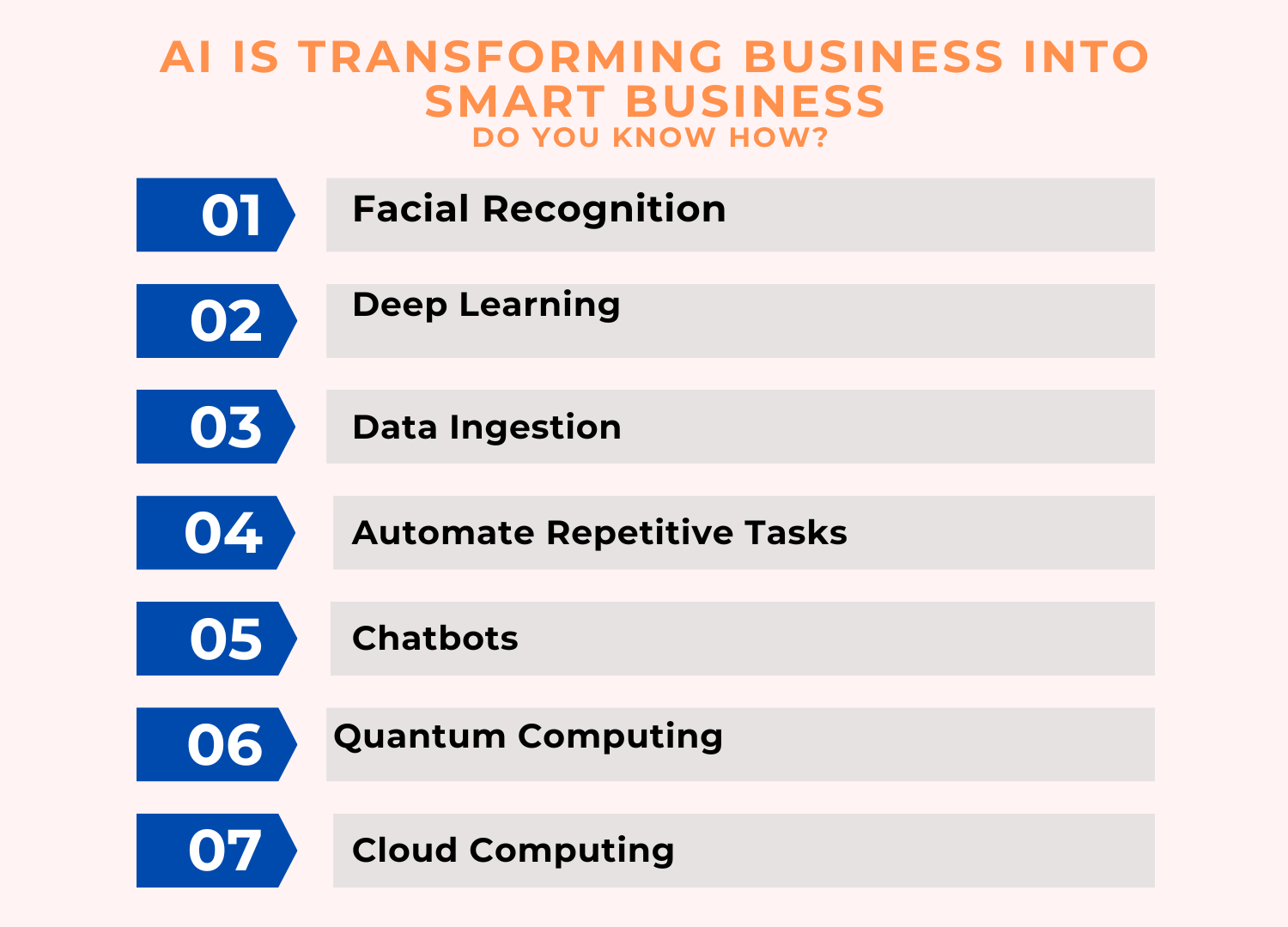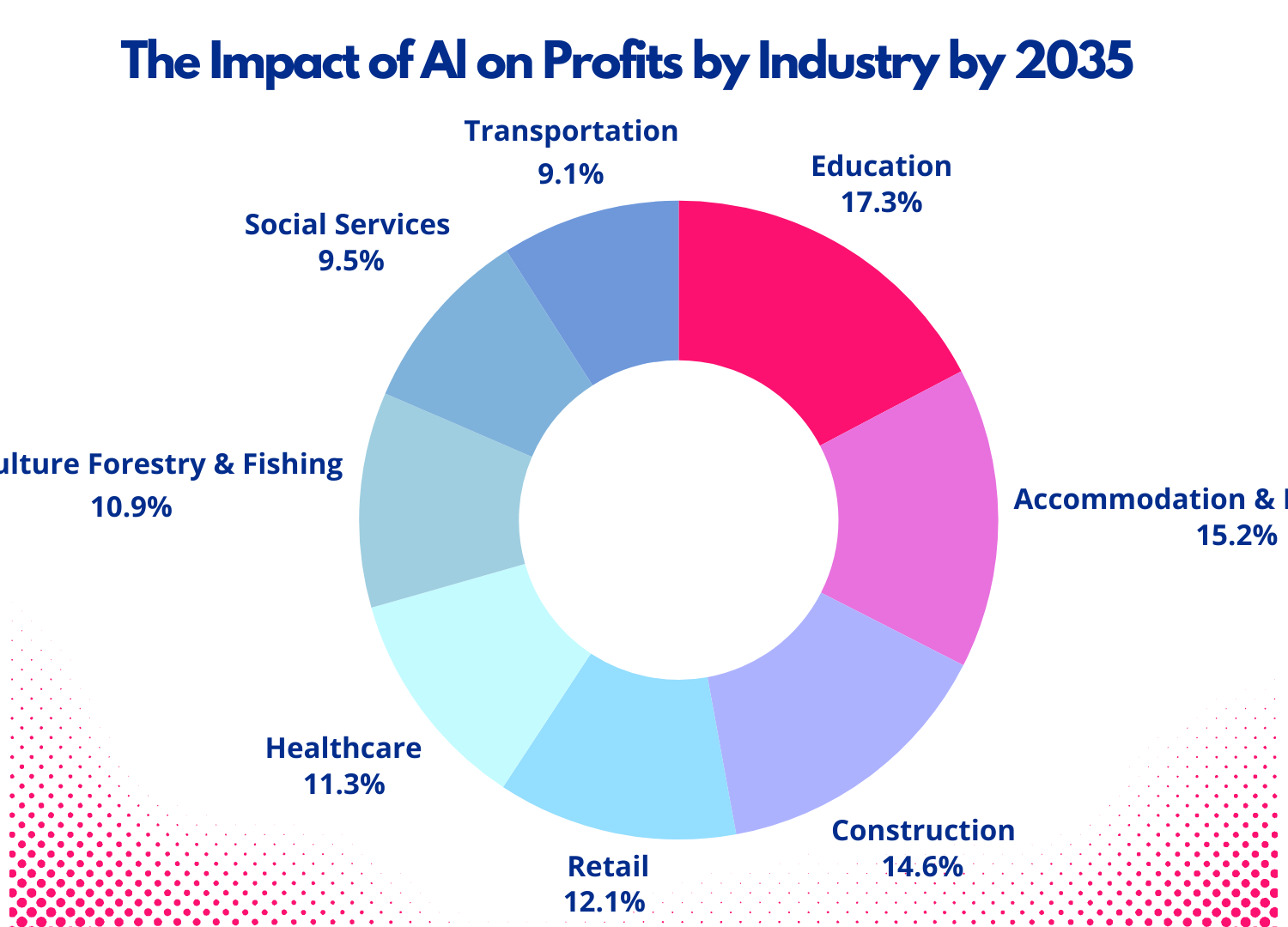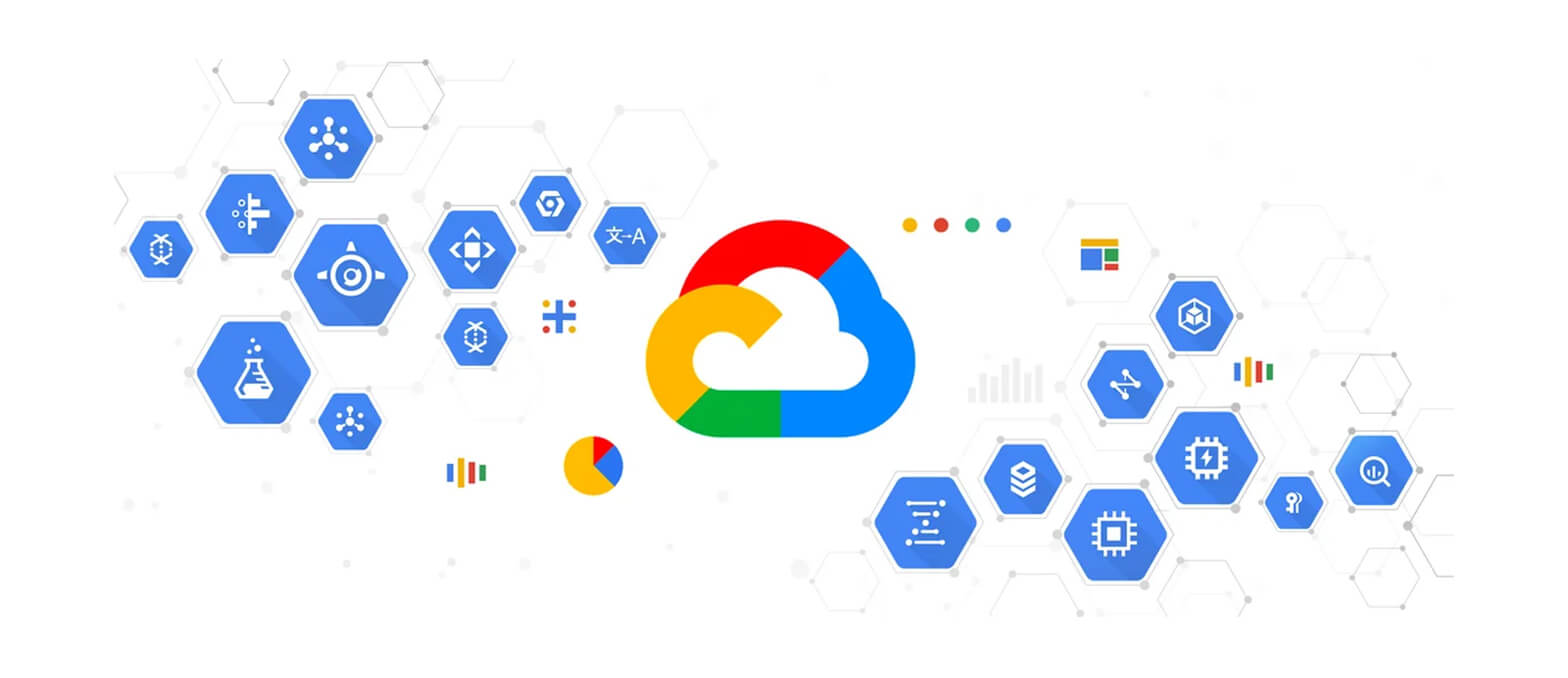Table of Contents
Today the demand for data and AI technology is getting higher. In every industry, you might find the usage of these elements. Thinking about how you can unlock the power of data and AI? Here is your answer.
By 2030, artificial intelligence is predicted to boost the world economy by $15.7 trillion, surpassing the combined production of China and India today. According to AI statistics, numerous industries are investing in data and AI today. Everything must be done effectively to get the maximum benefits from your investments. Below we discuss ways that you can do just this successfully to unlock maximum returns.
By understanding data and AI capabilities, businesses gain a competitive edge while individuals make better choices. Let’s dive deep into data-powered innovation now!
Understanding The Role Of Data In Business Transformation
Data is one of the greatest assets for modern businesses today. It gives businesses invaluable insight into operations, customers, and market trends. Data and analytics, according to 90% of business and enterprise analytics specialists, are essential to their company’s digital transformation ambitions. It understands the significance of business transformation efforts and gathers and analyzes them effectively.
Data-driven insights can guide business decisions.
Data-driven insights offer businesses information that can guide decision-making. Through analysis of their data, businesses can recognize patterns, trends, and correlations, which help make more accurate predictions and informed decisions about operations optimization; customer experience enhancement, and business expansion opportunities.
Role of Data Analytics Companies in Real Estate Development
Data analytics companies serve a vital function in helping businesses collect, interpret, and organize data efficiently and accurately. Their experts possess both the tools and expertise required to extract meaningful insights from complex datasets – helping businesses to identify KPIs, create data-driven strategies for the transformation of businesses, and implement data-driven solutions to accelerate change management efforts – making data an integral component of business transformation processes.
Exploit data for a competitive edge
Data analytics offers businesses a powerful edge in a highly competitive business landscape. It gives them insights into customers’ preferences, market trends, and competitors. By optimizing marketing strategies and creating personalized customer experiences you can improve overall business performance with data-driven insights.
Optimize Your Costs With our Data Analytics Solutions
Challenges Associated with Data Collection and Analysis
Data collection and analysis provide many advantages to businesses; however, businesses must also recognize their challenges. Accurate data requires appropriate infrastructure, tools, and processes, skilled individuals with interpretative ability, knowledge in data aggregation or complex dataset analysis, and being mindful of applicable privacy and security regulations that protect customer information.
Establish a data-driven culture
Businesses looking to maximize data’s potential must cultivate a culture within their organization that values data. This should involve increasing employee knowledge about it, supporting data-driven decision-making processes, investing in analytical technologies and tools, and investing in data literacy training for employees. By building such an ecosystem around data assets and encouraging its exploitation fully, businesses can unlock all their full potential while driving transformation across their businesses.
Data and business transformation
Today, business transformation starts with the collection of the right data. There are several technologies today playing a crucial role in the process. So, always embrace the right approach to collect data. It can assist in the process of business transformation and make it easy for you to get ahead. It will help you in the process of decision-making as well.
These aspects help you understand the importance of data and AI. The business world today needs the most out of it to achieve success. You can always connect with the right experts who can make it easy for you to make the most out of it.

Exploring the Potential of Artificial Intelligence in Business Transformation
-
Enhancement to Data Analytic Services (IDAS)
Artificial Intelligence offers an innovative approach to data analytics. By using AI algorithms, companies can collect, interpret, and assess large volumes of real-time data. It is instantaneous real-time insight for actionable recommendations. Enabling to make smart decisions while increasing operational efficiencies for greater efficiencies and profits.
-
Enhancing Customer Experience (CE)
AI chatbots and virtual assistants have become important in the business environment. This offers personalized customer support, answering frequently asked questions, performing transactions, and more. By harnessing artificial intelligence, businesses can improve customer experiences. This is done by decreasing response times while increasing satisfaction among their customers.
-
Predictive Analytics
AI algorithms have become an indispensable asset. Businesses rely heavily on financial, marketing, and supply chain services. By using predictive analytics solutions these businesses make informed decisions. While also recognizing risks early and seizing opportunities when available.
-
Automation of Repetitive Tasks
Artificial Intelligence enables businesses to automate repetitive tasks. These tasks drain employees of time for strategic or creative work. AI helps by freeing employees for more strategic or creative work. Automating processes like data entry, invoice processing, and inventory management enables businesses to increase efficiency, decrease errors, and boost productivity – increasing efficiencies as well as productivity!
-
Improved Decision-Making Capability
AI can assist businesses in making accurate and smart decisions. This is done by analyzing complex data sets and offering insights that humans might overlook. AI-powered decision support systems can take into account multiple variables, scenarios, and probabilities. This helps businesses make more accurate and informed choices.
-
Enhance Cybersecurity
Cyber-attacks are increasing, businesses require smarter tools to secure their sensitive data. AI plays an essential part in cybersecurity by continually monitoring network traffic, recognizing anomalies, and pinpointing potential threats – AI-powered security systems can respond in real-time, reducing risks while lessening cyberattack impacts in an instant.
-
Customized Marketing
AI algorithms can analyze customer data such as demographics. It browses behavior and purchase history to create marketing campaigns tailored for individual customers. By offering relevant messages or offers tailored specifically towards them, businesses can increase engagement rates, conversion rates, and customer loyalty while improving engagement, conversion rates, and loyalty among their customer base.

Source: Newsroom by Accenture
Leveraging data and AI for enhanced customer experiences
-
Personalization and Customization Through Data Analysis:
Data analytics consultants utilize customer information. This is to gain insight into customers’ preferences, behaviors, and needs. By leveraging customer data businesses can create custom experiences for customers. By tailoring product recommendations, offers, or marketing messages according to individual customer preferences. This increases conversion and customer satisfaction rates.
-
Artificial Intelligence-Powered Chatbots and Virtual Assistants:
AI technology is revolutionizing customer service by empowering businesses. By leveraging chatbots and virtual assistants that offer instantaneous responses to customer inquiries. This ranges from product information to order tracking. This frees human agents up for more complex or delicate interactions. While improving the customer experience with swift support, while simultaneously cutting costs for businesses.
-
Predictive Analytics to Anticipate Customer Needs:
Businesses can anticipate customer needs by employing data analytics and AI algorithms. Based on customer preferences they can proactively offer relevant products or services. And predict the need even before their customers realize they require them. E-commerce platforms could use predictive analytics for cross-selling opportunities while improving overall customer experiences.
-
Sentiment Analysis for Real-Time Feedback:
Data analytics consultants employ sentiment analysis techniques to quickly evaluate customer feedback in real time. They monitor social media mentions and customer reviews as sources of customer insights. This helps to identify areas for improvement. Businesses can gain invaluable insight into customer sentiment analysis, allowing them to address concerns promptly. Enhance services to improve overall customer experiences and enhance the customer journey.
-
Custom Marketing Campaigns:
Data analytics and AI enable businesses to launch highly tailored marketing campaigns. By using customer data to segment customers into subsets and deliver tailored messages and offers directly to specific groups. Not only does this increase the relevance and effectiveness of efforts, but it also ensures customers receive messages that resonate with their individual needs and interests – leading to improved overall customer experiences and overall revenue gains for companies using these approaches.
-
Increased Fraud Detection and Security:
Data analytics and artificial intelligence can also be leveraged to strengthen fraud detection and security measures, ultimately safeguarding customer experience. By observing patterns or anomalies in customer behaviors, businesses can identify possible fraudulent activities before taking proactive measures against them – helping safeguard customers’ sensitive data while at the same time building customer trust in your brand.
-
Continuous Improvement with Data-Driven Insights:
We all know how data analytics can make a huge difference. Businesses must use it right. Data and AI can assist businesses with the insights that can push them ahead. It can help them assess customer buying patterns. Not only this, it allows them to get hold of upcoming trends. So, businesses can strategize accordingly. It can help them remain ahead in the game and beat the competition. So, all you have to do is to find the right hands who can assist you in the process of data analytics. They will assist you with the reports that can make it easy for you to plan wisely and get ahead.
Streamlining Operations And Improving Efficiency With Data And AI
-
Predictive analytics to aid demand forecasting and inventory control
Data analytics consulting can help businesses streamline operations. By examining historical data and applying advanced algorithms, businesses can accurately forecast demand. They can adjust inventory levels accordingly. This eliminates the risks such as overstocking or stockouts. While improving customer satisfaction and cutting expenses with inventory management.
-
Automation of repetitive tasks using AI algorithms
Artificial Intelligence algorithms can automate repetitive tasks. This frees up employees for more strategic or value-adding activities. AI chatbots may assist in handling customer inquiries immediately with instantaneous responses, and other automated AI techniques may automate data entry, cleansing, and processing activities with increased data accuracy while saving valuable employee time and reducing errors.
-
Real-time monitoring and optimization
Data and AI enable real-time monitoring of operations. This enables businesses to quickly recognize bottlenecks or inefficiencies as they arise. This can help take immediate steps to optimize them. Real-time production line monitoring quickly detects issues before they escalate. Thereby decreasing downtime while increasing productivity.
-
Supply Chain Optimization Solutions.
Data analytics and AI can come in handy to optimize supply chains. This is by examining various aspects such as transportation costs, lead times, and supplier performance. It is key to identify areas for improvement and employ data-driven strategies. Businesses can reduce expenses while speeding delivery times and improving overall supply chain efficiency.
-
An enhanced customer experience
Businesses leveraging data and AI can unlock valuable insight. Especially into customer behavior and preferences. It provides custom offerings and recommendations while creating a great customer experience. AI algorithms can analyze customer data to predict customer preferences. This helps in suggesting relevant products or services, thereby improving customer satisfaction and loyalty.
-
Improved decision-making capabilities
Data analytics consulting helps businesses by providing actionable insights from data. It examines large datasets to uncover hidden patterns and trends. Businesses can make data-driven decisions with confidence that drive growth and profit. AI algorithms also offer additional ways of simulating scenarios to predict the outcomes of various strategies. With this businesses can confidently make data-driven decisions.
-
Continuous innovation and enhancement.
Data and AI allow businesses to continuously assess and examine their operations, pinpointing areas for improvement and innovation. By harnessing analytics and AI algorithms to discover new opportunities and streamline processes while driving innovation forward. Businesses using this approach are better prepared to stay ahead of the competition while adapting quickly to shifting market dynamics.
These are the aspects that define how data and AI can help you streamline your business process. You can always hire experts to assist you with the same. A3Logics has the right team to assist you with data and AI solutions. You can always reach out to them for the best results in terms of streamlining business operations.
Overcoming challenges and ensuring ethical use of Data and AI
-
Custom Data Analytics Solutions Are Essential in Overcoming AI/ML Challenges
Businesses today rely heavily on data-driven decision-making and custom data analytics solutions. All this for valuable insight and efficiencies in operations, which has seen companies relying heavily on custom solutions. It helps to unlock insights that drive valuable outcomes and optimize operations. With an abundance of data being accumulated along with artificial intelligence (AI), however, addressing any related challenges while assuring ethical use must remain paramount if this area of analysis is to continue growing responsibly and ethically. Here are a few considerations:
-
Data Privacy and Security Considerations: Protecting sensitive information with care.
One of the greatest challenges of data is protecting its privacy and security. Companies must follow rules for data protection. They must implement safeguards such as encryption of customer information. Not only this, they must also access controls, regular auditing protocols to detect vulnerabilities in security protocols, and encryption technology to keep customer records protected.
Connect with our data experts and experience the power of data analytics in your business
Ethical Implications of AI Decision-Making:
-
Ensuring Fairness and Transparency
AI algorithms are a part of business decision-making processes. It ranges from hiring processes to loan approvals, but their use raises concerns regarding bias and transparency issues in AI decision-making processes. Businesses should strive for fairness and transparency within their AI models by regularly auditing for bias, providing explanations behind AI decisions made, engaging diverse teams during the development/validation of algorithms, etc.
-
Fostering trust through responsible data collection and use
Businesses seeking to use data ethically must prioritize responsible data collection and use. This involves seeking informed consent from individuals before collecting it, being transparent about any practices used to collect said data; using it only for its intended use; setting clear policies and guidelines regarding its handling, as well as regularly informing their staff on ethical data practices.
Collaboration and Regulation for Responsible AI Use: Working together towards ethical AI usage.
Ineffective response to data and AI challenges requires collaboration among businesses, regulators, and industry experts. Businesses should actively engage with regulatory bodies. They must take part in discussions or initiatives designed to develop ethical guidelines or standards related to these technologies. Together all stakeholders can make sure data and AI technologies usage are responsible and ethical.
- Ongoing Monitoring and Improvement: Staying ahead of ethical challenges.
As data and AI continue to advance we can see new ethical challenges arise. Businesses that want to keep abreast of changes should regularly evaluate and monitor their data practices. Conducting audits regularly, receiving stakeholder feedback on any emerging ethical considerations as they emerge, and being proactive about ethical concerns before they become major issues can address ethical hurdles early.
- Empowering Individuals: Granting them control over their data
Empowering individuals with control of their data is also key for the ethical use of AI and data. It includes transparent policies, opt-out options, and easy access. By giving individuals greater power over their personal information, businesses can foster an environment with more ethical data use practices.
Case studies of businesses that have successfully transformed with data and AI
-
Netflix Revolutionizing the Entertainment Industry with Data and AI
Netflix stands as an outstanding example of an innovative business that has successfully integrated data and AI. By employing data analysts and sophisticated algorithms to personalize user experiences and provide tailored recommendations tailored specifically for each individual, Netflix has successfully used data analysis expertise and user behavior tracking data to increase customer retention while improving satisfaction levels and user retention rates.
-
Amazon: From Online Retailer to Data-Driving Powerhouse
Amazon has gone from an ordinary online bookstore to an international powerhouse. All this through the power of data analytics and artificial intelligence (AI). Their recommendation engine uses AI-powered algorithms to track customer browsing habits and purchase history to offer personalized recommendations – this personalized approach has dramatically increased customer engagement rates while simultaneously driving company success.
-
Uber: Redefining Transportation With Data and AI
Uber has revolutionized the transportation industry through data and AI to optimize its operations. By gathering real-time traffic patterns, demand, and driver availability information in real-time, Uber uses AI to match drivers with riders more quickly, thus decreasing wait times and improving customer satisfaction. Furthermore, surge pricing predictions ensure competitive prices during peak periods.
-
Spotify: Tailoring Music Streaming with Data and AI
Spotify is revolutionizing the music streaming industry. With data and AI it is tailoring playlists and recommendations to the user’s taste. This results in an increase in user engagement and retention. Furthermore, AI technologies analyze audio features of songs, which helps optimize music discovery algorithms.
Gain a Competitive Advantage With Advanced Analytics
Final Thoughts
Data and artificial intelligence can greatly transform businesses. Leveraging insights and patterns found within data allows organizations to make more informed decisions. It enhances operations and fosters innovation. Artificial Intelligence like machine learning and predictive analytics allows businesses to automate processes. It can also maximize efficiencies, and provide personalized experiences to customers. Keyword optimization in data and AI strategies can ensure businesses effectively target their desired audiences, increase visibility, and drive growth. Integrating AI is no longer optional but essential to businesses wishing to remain competitive in today’s digital environment.
FAQs
How are Data and AI helping businesses transform?
Data and AI hold immense potential to transform businesses. It offers invaluable insights and automates processes. With data analytics and AI algorithms, businesses can make smart decisions. It also increases efficiency, improves customer experiences, and new growth opportunities.
What role do data play in AI transformation?
Data is key in AI transformation as it powers AI algorithms. AI systems need large quantities of information to recognize patterns, make predictions, and deliver intelligent solutions. High-quality and diverse datasets are vital in training AI models accurately for maximum reliability in results delivery.
How can businesses utilize artificial intelligence (AI) for effective data analysis?
Businesses can use AI by employing machine learning algorithms and AI tools for data analysis. These technologies can automatically process vast quantities of information to uncover hidden patterns or insights. It can generate actionable recommendations that optimize operations. It helps to enhance decision-making and spur innovation.
What are the advantages of incorporating artificial intelligence in data-driven decision-making?
Integrating artificial intelligence technology into data-driven decision-making offers numerous advantages. AI algorithms can process and analyze information much more rapidly than humans can. Leading to quicker and more accurate insights. AI also assists businesses by uncovering complex patterns or correlations not visible to humans. It facilitates informed decision-making while creating a competitive advantage for themselves.
What ethical considerations must companies keep in mind when using data and AI?
Businesses using data and AI should carefully consider ethical implications when employing it, including data privacy, security, and fairness. Businesses must ensure they use customer data responsibly while protecting it against unapproved access or meeting regulatory compliance obligations. In addition to that, organizations must strive for fairness in AI systems. It can be done by eliminating biases while making sure AI algorithms treat individuals or groups equally.






